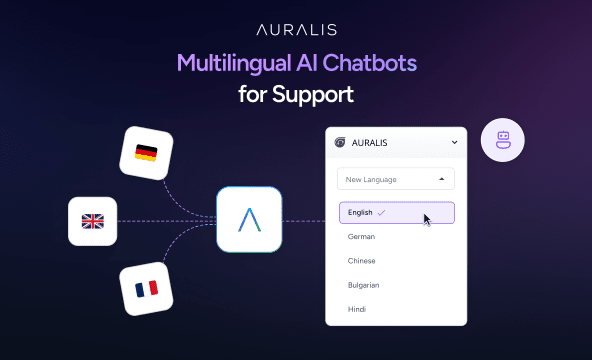AI for customer communication
AI for customer communication is revolutionizing how businesses interact with their customers, providing more efficient, personalized, and responsive service. By leveraging artificial intelligence, businesses can streamline their communication processes, ensure timely responses, and create more meaningful interactions that drive customer satisfaction and loyalty.
One of the primary benefits of AI in customer communication is the ability to offer 24/7 support. AI-powered chatbots and virtual assistants are always available to handle customer queries, whether it’s during business hours or outside of them. This ensures that customers receive immediate assistance, eliminating wait times and reducing the frustration often caused by delayed responses. AI chatbots can manage a wide range of inquiries, from answering frequently asked questions to troubleshooting common issues, providing customers with quick and accurate solutions.
AI for customer communication also enhances personalization. By analyzing customer data, AI systems can tailor responses and recommendations based on previous interactions, preferences, and behaviors. This means customers receive a more personalized experience, with solutions that are relevant to their specific needs and inquiries. For example, AI can recommend products based on a customer’s purchase history or provide tailored troubleshooting advice based on past issues. This level of personalization not only improves customer satisfaction but also fosters a stronger connection between the customer and the brand.
Another key advantage of AI for customer communication is its ability to manage and automate complex queries. AI can handle a wide variety of communication channels, including email, chat, social media, and voice, ensuring consistency across all touchpoints. Whether a customer reaches out via live chat or sends an email, AI ensures that the communication is seamless and that customers receive the same level of assistance. Additionally, AI systems can be trained to handle more intricate queries that may require detailed knowledge or context, enabling businesses to provide high-quality service without overloading human agents.
AI also improves the efficiency of customer communication by automating routine tasks. For example, AI systems can automatically categorize and route customer inquiries to the appropriate department or agent, ensuring that customers are connected to the right person quickly. This minimizes response times and reduces the chances of miscommunication or delays in issue resolution. By automating these processes, AI frees up human agents to focus on more complex issues, ultimately improving overall service quality.
Furthermore, AI can help businesses monitor customer sentiment in real-time. Through natural language processing (NLP) and sentiment analysis, AI can gauge how customers feel about their interactions, identifying whether a conversation is positive, negative, or neutral. This allows businesses to respond accordingly, such as escalating a negative interaction to a human agent or offering a follow-up to ensure that the customer is satisfied. By understanding and responding to customer sentiment, AI helps businesses create more positive communication experiences that foster long-term relationships.
AI for customer communication also ensures better consistency and accuracy in responses. Since AI systems rely on structured data and predefined rules, they can consistently provide accurate answers and avoid the variability that can sometimes occur with human communication. This consistency is particularly valuable for businesses with large customer bases or those that manage high volumes of inquiries, as it ensures that every customer interaction is handled with the same level of professionalism and reliability.
Lastly, AI can help businesses scale their customer communication efforts without compromising quality. As customer demand grows, AI tools can handle an increasing number of interactions simultaneously, ensuring that every customer receives timely responses. This scalability is essential for businesses looking to expand their customer base while maintaining high levels of service and communication quality.
In conclusion, AI for customer communication enhances efficiency, personalization, consistency, and scalability in customer service operations. By automating routine tasks, offering 24/7 support, personalizing interactions, and managing complex queries, AI enables businesses to deliver exceptional customer experiences that build trust, foster loyalty, and drive long-term success.

- Articles
When it comes to offering a great customer support experience, it’s not just about a good response time. Businesses that
-
 Amy
Amy
- 5 min read
